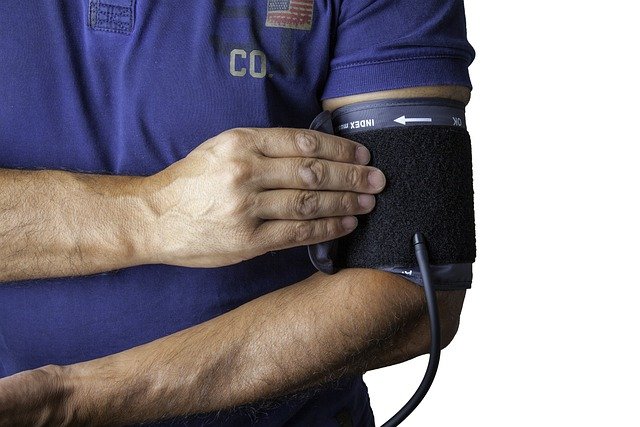How a Cardiac Stress Test Works and What It Shows About Your Heart Health
Cardiac stress tests reveal how your heart performs under stress. By measuring heart rate, rhythm, and blood flow during activity, these tests provide key insights into cardiovascular health, making them a useful tool for understanding your heart’s function.

How a Cardiac Stress Test Works and What It Measures
A cardiac stress test, also known as an exercise stress test, works by monitoring your heart’s response to increased physical activity. During the test, you’ll typically walk on a treadmill or pedal a stationary bicycle while the intensity gradually increases. Throughout this process, medical professionals track several key measurements:
Your heart rate and how quickly it increases with exercise provides valuable information about cardiovascular fitness and heart function. Blood pressure changes are closely monitored, as abnormal responses can indicate underlying heart problems. Electrocardiogram (ECG) readings record your heart’s electrical activity, revealing potential issues with heart rhythm or blood flow. Additionally, your breathing patterns and oxygen consumption may be measured to assess overall cardiovascular efficiency.
The test aims to safely increase your heart’s workload to reveal symptoms or abnormalities that wouldn’t appear when your heart is at rest. By pushing the heart to work harder in a controlled medical environment, physicians can observe how well blood flows through your coronary arteries and identify potential blockages or other issues.
Cardiac Stress Test for Heart Health Assessment
Healthcare providers recommend cardiac stress tests for various reasons related to heart health assessment. You might need this test if you’re experiencing symptoms like chest pain, shortness of breath, irregular heartbeats, or unexplained fatigue during physical activity. For individuals with risk factors such as high blood pressure, diabetes, high cholesterol, smoking history, or a family history of heart disease, a stress test provides valuable preventive screening.
The test results help doctors evaluate your overall cardiovascular health, determine your safe exercise limits, and develop appropriate treatment plans. For patients who’ve already undergone heart procedures or surgery, stress tests help monitor recovery progress and treatment effectiveness. The information gathered during a stress test contributes to a comprehensive picture of your heart health beyond what standard resting tests can provide.
Different variations of cardiac stress tests exist, including the standard exercise test, nuclear stress test (which uses a radioactive tracer to show blood flow), stress echocardiogram (utilizing ultrasound imaging), and chemical stress tests (for those unable to exercise). Your doctor will recommend the most appropriate version based on your specific health situation and what information they need to gather.
Cardiac Stress Test for Detecting Heart Conditions
Cardiac stress tests excel at detecting several heart conditions that might remain hidden during normal daily activities. Coronary artery disease (CAD), characterized by narrowed or blocked coronary arteries, often reveals itself during physical exertion when the heart demands more blood. A stress test can identify restricted blood flow to the heart muscle, which manifests as abnormal ECG changes, chest pain, or shortness of breath during the test.
The test can also detect arrhythmias (irregular heart rhythms) that emerge only during physical activity. For patients with heart valve disorders, a stress test helps assess how these abnormalities affect heart function during exertion. Additionally, the test can reveal heart failure symptoms by showing how efficiently your heart pumps blood when demands increase.
By identifying these conditions early, cardiac stress tests enable prompt intervention, potentially preventing heart attacks or other serious cardiac events. The test results often guide further diagnostic testing decisions, such as whether a coronary angiogram might be necessary to directly visualize coronary artery blockages.
Preparing for Your Cardiac Stress Test
Proper preparation helps ensure accurate results from your cardiac stress test. Your doctor will provide specific instructions, but general guidelines include wearing comfortable clothing and supportive athletic shoes suitable for exercise. You’ll typically need to avoid eating heavy meals for two to four hours before the test, and you should avoid caffeine and tobacco products for at least 24 hours beforehand as these can affect heart rate and blood pressure.
Certain medications may need to be temporarily discontinued before the test, but never stop taking any prescription medication without your doctor’s explicit guidance. Be prepared to discuss your complete medical history, including any previous heart problems, other health conditions, and current medications. If you use an inhaler for asthma or other breathing conditions, bring it with you to the test.
On test day, plan to arrive early to complete paperwork and prepare for the procedure. The entire appointment typically takes 1-2 hours, though the exercise portion usually lasts only 7-12 minutes. Understanding what to expect can help reduce anxiety, which is important since stress itself can affect your heart rate and test results.
What to Expect During and After the Test
When you arrive for your cardiac stress test, a healthcare professional will place several adhesive electrodes on your chest to monitor your heart’s electrical activity. A blood pressure cuff will be wrapped around your arm for regular measurements throughout the test. Before exercise begins, baseline readings of your heart rate, blood pressure, and ECG will be recorded.
The exercise portion starts slowly and gradually increases in difficulty every few minutes. You’ll continue until you reach a target heart rate or until you develop symptoms that indicate the test should stop. Throughout the process, you’ll be asked about any symptoms you experience, such as chest discomfort, shortness of breath, or fatigue.
After completing the exercise portion, you’ll enter a recovery period where monitoring continues as your heart rate and blood pressure return to normal. This phase is important as some cardiac issues only become apparent during recovery. Most people can resume normal activities after the test, though your doctor may advise otherwise depending on your specific situation.
Test results are typically analyzed by a cardiologist and may be available immediately or within a few days. Your doctor will schedule a follow-up appointment to discuss the findings and any necessary next steps for your heart health management.
Costs and Coverage for Cardiac Stress Tests
The cost of a cardiac stress test varies depending on the type of test, facility, location, and whether additional imaging is included. A basic exercise stress test typically ranges from £200 to £500 in the UK. More advanced versions like nuclear stress tests or stress echocardiograms may cost between £600 and £1,500 due to the specialized equipment and expertise required.
| Test Type | Average Cost (Private) | NHS Waiting Time | Coverage Notes |
|---|---|---|---|
| Basic Exercise Stress Test | £200-£500 | 4-12 weeks | Fully covered by NHS with referral |
| Nuclear Stress Test | £800-£1,500 | 6-16 weeks | NHS covered with specific indications |
| Stress Echocardiogram | £600-£1,000 | 4-14 weeks | NHS covered with cardiac referral |
| Chemical/Pharmacological Stress Test | £700-£1,200 | 6-14 weeks | NHS covered for patients unable to exercise |
Prices, rates, or cost estimates mentioned in this article are based on the latest available information but may change over time. Independent research is advised before making financial decisions.
In the UK, cardiac stress tests are fully covered by the National Health Service (NHS) when ordered by a GP or specialist with appropriate medical indication. Private health insurance policies typically cover stress tests when deemed medically necessary, though coverage details vary by provider and specific plan. Some patients opt for private testing to avoid NHS waiting times, which can range from several weeks to months depending on urgency and local resources.
Before scheduling a test, it’s advisable to check with your insurance provider about coverage details and whether pre-authorization is required. If you’re self-paying, inquire about payment plans or discounted rates that many facilities offer.
Interpreting Your Cardiac Stress Test Results
Cardiac stress test results are interpreted based on several factors including your exercise capacity, heart rate response, blood pressure changes, ECG patterns, and any symptoms experienced during the test. A normal result generally indicates that your heart receives adequate blood flow during exercise and shows no significant abnormalities in rhythm or function.
Abnormal results might show ECG changes suggesting reduced blood flow to the heart muscle, inadequate heart rate increase with exercise, abnormal blood pressure response, or significant arrhythmias. These findings don’t necessarily confirm a diagnosis but indicate areas that may require further investigation.
It’s important to understand that stress tests have limitations – they may sometimes produce “false positive” results (suggesting a problem when none exists) or “false negative” results (missing an actual problem). Your doctor will consider your test results alongside your medical history, symptoms, and risk factors to determine appropriate next steps, which might include additional testing such as coronary angiography or cardiac CT scanning.
This article is for informational purposes only and should not be considered medical advice. Please consult a qualified healthcare professional for personalized guidance and treatment.




